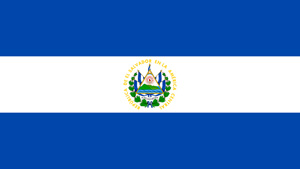
Citizen of Cambodia receives INA 212(c) relief, seventeen years after he was unjustly deemed ineligible for such relief
March 31, 2016
Facts: Last year, the firm reported that our client’s removal proceedings had been reopened, sixteen years after our client had been unjustly deemed ineligible for INA 212(c) relief and ordered removed.
The Firm’s Representation: After our client’s case was reopened, venue for the removal proceedings was moved to the Charlotte, North Carolina Immigration Court, near where our client resided. Our client demanded that the firm continue to represent him and the firm agreed that we were in the best position to represent our client moving forward. The firm made the final preparations for our client’s INA 212(c) application for relief and represented our client at his individual hearing on relief in the Charlotte, North Carolina Immigration Court.
Outcome: On March 31, 2016, our client was finally granted INA 212(c) relief, nearly seventeen years after our client had been unjustly deemed ineligible for such relief. Our client was once again a lawful permanent resident. Needless to say, our client was extremely happy with the outcome.
Comment: Our client was a citizen of Cambodia, a country that refused to issue our client a travel document to return to Cambodia after he had been ordered removed to Cambodia. Had Cambodia issued our client a travel document, our client would have been physically deported years ago. Our client was lucky, but sadly thousands of green card holders were deported by a United States immigration system that obstinately and unjustly denied their legal right to apply for INA 212(c) relief, a relief that would have provided these green card holders a chance to retain their legal status and remain in the United States.

El Salvadoran refugees of gang violence granted asylum
February 22, 2016
Facts: In 2013, a citizen of El Salvador and her child and her brother came to the firm seeking help.
The Firm’s Representation: Our client’s partner testified against gang members at a murder trial in El Salvador. Prior to the trial, the gang members tried to intimidate the witness by threatening the witness’ girlfriend (our client), and her child and her brother. The El Salvador police could not protect our client or her family and as a result they fled El Salvador and came to the United States looking for safe refuge. In jurisdiction of the Federal Court of Appeals for the Fourth Circuit, which includes the Baltimore Immigration Court, family members who have been threatened or harmed merely because of their social status as family members are an asylum-based protected group. Here, our client and her child and her brother were threatened by gangs for no other reason than their familial relationship to the witness (our client’s partner), which is a recognized social group under Fourth Circuit case law.
Outcome: On February 22, 2016, our client, her son, and her brother were all granted asylum protection in the Baltimore Immigration Court.

After near deportation, citizen of El Salvador enters the United States with a green card
January 28, 2016
Facts: In early 2013, a citizen of El Salvador came to the firm seeking a solution to his immigration problems.
The Firm’s Representation: This case was one of the most difficult cases that the firm has ever handled because the initial outlook for the case was not good at all. In early 2013, our client and his U.S. citizen wife approached the firm to see what could be done. Our client had an in absentia removal order from 2005 from when he crossed the U.S. border and was placed in removal proceedings but failed to attend his immigration court hearing. In addition, our client had two DUI convictions. There was no way to reopen our client’s case through the immigration court. So, the firm petitioned Immigration and Customs Enforcement (ICE) to join a motion to reopen. Concurrently, the firm submitted a family based I-130 petition to USCIS. The firm knew that reopening with ICE would be dicey with the DUI convictions. In addition, at that time ICE had a stated policy that it would not join motions to reopen so that non-citizens could pursue the Provisional Unlawful Presence Waiver. The firm filed the joint motion request in May of 2013. The request was denied in December 2013. The firm persisted with ICE and asked for a re-examination of the request in January 2014. Several weeks later, ICE detained our client in order to physically deport him. The firm worked fast and filed a stay of removal with ICE which was granted several days later. Fortunately, in August 2014, ICE agreed to reopen and terminate our client’s removal order. Once the removal order was terminated and the I-130 petition was granted, the firm filed an I-601A waiver for our client, which was granted on April 1, 2015. Then, the firm then processed our client’s immigrant visa at the U.S. Embassy in San Salvador, El Salvador.
Outcome: On January 28, 2016, three years after the firm started the representation, our client entered the United States with his immigrant visa.

Citizen of India receives U.S. citizenship with theft conviction
August 21, 2015
Facts: In March 2014, a citizen of India sought a second opinion on his ability to naturalize even though he had a theft conviction.
The Firm’s Representation: This case should not have been difficult. The difficulty for the firm was that our client had received an opinion from a highly respected and high experienced immigration attorney that our client should under no circumstances attempt to naturalize. The prior immigration attorney had warned our client that if he tried to naturalize, he would be denied and placed in removal proceedings and deported. After quite a lot of discussion, the firm convinced our client that this prior advice was incorrect and the firm advised our client to file an application for naturalization, which the firm did. Making matters worse, our client’s interviewing officer at USCIS was a recent transfer from California and was not familiar with Maryland law. The firm received two disturbing Requests for Further Evidence (RFE) from USCIS. The firm responded to the RFEs and patiently explained to USCIS that our client was indeed eligible for naturalization. Nevertheless, our client was nervous the entire time, based on the initial advice from his prior immigration attorney and based on the RFEs from USCIS.
Outcome: On August 21, 2015, our client became a citizen of the United States.

Citizen of Yemen obtains citizenship after successful coram nobis petition
May 15, 2015
Facts: In January 2013, a citizen of Yemen entered the United States and was stopped at the border and placed in secondary inspection. Even though the citizen of Yemen had a green card, he had an 16-year old conviction for the Maryland offense of second degree assault. Border patrol released the citizen of Yemen, but he was shaken nevertheless. He sought the firm’s help.
The Firm’s Representation: In 2013, the Maryland offense of second degree assault was potentially an aggravated felony under the INA. In our client’s case, he had been sentenced to 18 months incarceration, which could have triggered an “aggravated felony” classification. The firm had no choice but to seek a belated sentence reduction by way of a coram nobis petition. Luckily, our client had no further brushes with law enforcement which always helps. The coram nobis petition was granted and our client received a probation before judgment. The firm subsequently filed an application for naturalization.
Outcome: Our client is now a citizen of the United States. This case ended up being one the most gratifying cases the firm has ever worked on. When our client first approach us, he was in medical school. Eventually, our client was approaching graduation from medical school and he was applying for residency positions. Even though our client was at the top of his class in a prestigious medical school, his conviction for second degree assault was hindering any residency program from offering him a position. After our client’s assault conviction was re-sentenced as a probation before judgment, the firm received a call from our client. He asked whether he had to indicate on his residency applications that he had a conviction. The firm told our client that, under Maryland law, a probation before judgment cannot be considered a conviction for any purpose (although for immigration purposes, a probation before judgement still remains a conviction). So, our client started sending out his residency applications that indicated that he had no convictions and subsequently residency offers started pouring in. Our client eventually accepted a residency position at prestigious hospital in Baltimore, Maryland and he is on his way to becoming a full-fledged medical doctor. Everybody makes mistakes and everyone deserves a second chance. The firm was really happy to be able to help our client reach his goals.

Citizen of Guatemala retains his green card with a 212(h) waiver
February 23, 2015
Facts: In July 2012, a citizen of Guatemala entered the United States and was stopped at the border and placed in secondary inspection. Even though the citizen of Guatemala had a green card, he had several convictions for theft and he was inadmissible to enter the United States. He was placed in removal proceedings and came to the firm for help.
The Firm’s Representation: Our client walked into the firm’s office for a consultation at 5:00 pm. After reviewing our client’s criminal history, it was discovered that our client had a theft conviction and a one year suspended sentence, which in the immigration context is an aggravated felony. Further review showed that our client had walked into the the firm’s office on exactly the 90th day after he was sentenced for his theft conviction. In Maryland, criminal defendants have 90 days to file a motion to reconsider the sentence. In this case, we needed to reduce our client’s sentence by one day to 364 days or less, but the court had already closed for the day. The firm called a colleague in Montgomery County who stated that the court had an after hours drop box. The firm quickly drafted a motion to reconsider sentence and emailed the motion to the firm’s colleague who agreed to deposit our client’s motion in the after hours drop-box for the Montgomery County Circuit Court. What luck! Several months later, the motion was granted and our client’s sentence was reduced to 360 days. The sentence reduction paved the way for our client to seek an INA 212(h) waiver in the Immigration Court. Our client did the personal work to keep himself out of trouble and the firm did the rest.
Outcome: Our client was granted an INA 212(h) waiver and he was able to retain his green card. In a few years, our client can apply for naturalization.

Citizen of Portugal and Mexico granted citizenship by operation of law
December 29, 2014
Facts: In January 2014, a citizen of Portugal entered the United States on the Visa Waiver Program and came to the firm because she thought she might be a citizen of the United States.
The Firm’s Representation: Citizenship by operation of law can be very tricky, especially in this case. In this case, our client’s father was a Portuguese national who came to the United States as a child and later naturalized before our client was born. While in Mexico, our client’s father had a child – our client – with a Mexican woman, but they were not married. They eventually got married about 20 years later, in Portugal. Our client was actually born in Mexico, but obtained Portuguese citizenship when she was a teenager. Luckily, that process included documentation from our client’s father that professed financial support and paternity of our client, all of which occurred before our client turned 18 years of age.
Outcome: On December 29, 2014, our client was given a certificate of U.S. citizenship.

Citizen of El Salvador’s Temporary Protected Status is reopened after being closed for over 10 years
July 10, 2014
Facts: In 2001, a citizen of El Salvador applied for Temporary Protected Status (TPS). In 2004, the El Salvadoran citizen’s TPS renewal application was denied. The El Salvadoran citizen tried several times to have the case reopened with no luck. In 2013, the citizen of El Salvador came to the firm for help.
The Firm’s Representation: Reopening TPS cases can be very tricky and every case is different. Nevertheless, the firm has had quite a bit of success reopening old TPS denial cases. In many cases, the legacy Immigration and Naturalization Service (INS) denied TPS applications when the applicant failed to attend a biometrics (fingerprinting) appointment or when the applicant failed to respond to a notice. In our client’s case, INS denied our client’s TPS application because she missed a biometrics appointment. However, the firm discovered paperwork that our client did not miss the appointment and that it was possible that INS made a mistake. The argument for reopening at that point was straight forward. The adjudication process of reopening TPS cases with United States Citizenship and Immigration Services (USCIS) takes quite a while, typically about a year.
Outcome: On July 10, 2014, our client’s TPS application was reopened. The firm is in the process of helping our client apply for a work permit again, over ten years after her last one was approved.

Citizen of Guatemala receives green card based on Special Immigrant Juvenile Status
March 31, 2014
Facts: On March 9, 2013, a citizen of Guatemala was in deportation proceedings. He came to the firm for help.
The Firm’s Representation: Our client was a minor. In addition, our client’s father had abandoned him when he was nine years old. The firm quickly realized that he could qualify for Special Immigrant Juvenile Status (SIJS). SIJS is a three step process. First, a guardian for the minor must be appointed in the state court, and the state court must make special findings. Essentially, the state court must make a special finding (1) that the minor was subjected to abuse, neglect or abandonment by one or both parents and (2) that it is not in the best interest of the child to be returned to his home country. Once guardianship and the special finding have been made, the minor can self-petition for a visa with USCIS. The last step is that the minor can apply for a green card with USCIS. Our client was only two weeks away from turning 18 years old and the firm had to act quickly because the Maryland state courts have guardianship jurisdiction until the minor turns 18 years old. The firm expedited the guardianship proceedings and obtained the guardianship and special findings prior to our client turning 18. Then the firm filed our client’s self-petition, which was granted.
Outcome: On March 31, 2014, our client received his green card.

Citizen of El Salvador is granted a green card through NACARA after being voluntarily placed in removal proceedings
March 12, 2013
Facts: In September 2012, a citizen of El Salvador was desperate to get his green card. He had been in the United States for nearly 25 years. He was eligible for NACARA (Nicaraguan And Central American Relief Act), but he could not apply to USCIS to get his green card. His previous attorney billed him thousands of dollars, but ultimately, the attorney did nothing for the citizen of El Salvador. The citizen of El Salvador sought the firm’s help.
The Firm’s Representation: The firm first analyzed whether there was any relief available for our client. The form realized that our client was eligible for NACARA. However, our client never applied for asylum. Because our client never applied for asylum, USCIS did not have jurisdiction over his NACARA application. Only the Immigration Court had jurisdiction to adjudicate his NACARA application. The firm told our client that he had to be placed in removal proceedings to get a green card. Of course, our client was very concerned about being placed in removal proceedings, but the firm assured him that everything would be okay. The firm placed our client in removal proceedings. The firm attended one status hearing with our client in the Immigration Court in January 2013, whereupon a final hearing was set for March 12, 2013.
Outcome: On March 12, 2013, our client was granted NACARA special rule cancellation of removal and granted a green card.

